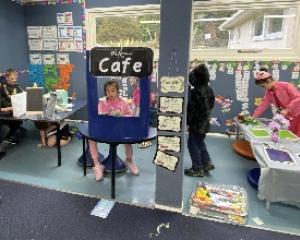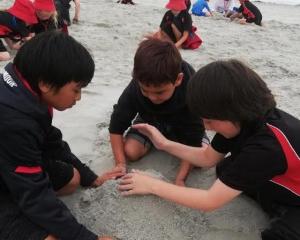What is bullying?It is deliberate - there is an intention to cause physical and/or psychological pain or discomfort to another person. It involves a power imbalance - there is an unequal relationship between the person doing the bullying and the person being bullied. It has an element of repetition - bullying is usually repeated over time, with the threat of further incidents leading to fear and anxiety. It is harmful - the person being bullied suffers short- or long-term physical or psychological harm. |

Whether verbal, physical or cyber, bullying is a huge problem in New Zealand schools.
With 20% of children facing bullies at school, families, schools and communities need to work together to tackle the problem.
Bullying is complex behaviour which can take in the physical and online world. It can include physical threats or actions, such as stand-over tactics or hitting a person; verbally abusing someone, either in person or via email and text, or posting comments online; or spreading rumours, excluding someone from groups or activities or posting negative material about them online.
IS YOUR CHILD BEING BULLIED?
As most bullying is hidden from adults' view, it is important to know the signs that your child may be being bullied.
Your child may display a range of behaviours. They may seem anxious or negative about school, be reluctant to join in certain activities, have bruises they don't explain, seem withdrawn or submissive with other children, seem unhappy or insecure, say things like ``I haven't got any friends'', talk about getting back at someone, seem nervous when a text message or email appears, or find it hard to stand up for themselves.
If you think your child is being bullied, contact your school. The school must provide a safe, positive learning environment which is free from bullying.
You should expect to be heard and responded to; to have your report investigated and responded to; to be protected from any negative consequences of your reporting; and that the school will intervene and support initiators, targets and bystanders involved in bullying behaviour.
After you have met with the school, keep them informed of any developments in the situation.
If you are not happy with the school's response, you can make a complaint to the board of trustees. If you are still not satisfied with the response, you can take your complaint further to the Ministry of Education or the Office of the Children's Commissioner.
You can support your child by talking to them and reassuring them that they have done the right thing by telling you about the bullying.
Come up with a support plan based on the bullying behaviour.
This could include ideas for what they can do when bullying happens - ignore it, tell the person to stop, walk away, tell someone; who they will tell about the bullying; any areas which should be avoided; and encourage them to tell their friends about the bullying and stick with them in and out of school as often bullying happens when no-one is around.
CYBERBULLYING
This is when someone uses digital technology to send, post or publish content with the intention of harming another person or group.
It can take many forms, including name-calling, repeated unwanted messages, spreading rumours or lies, using fake accounts to harass people, posting or sending embarrassing pictures or videos.
If your child is a victim of cyberbullying, you should keep all the messages and images as evidence for the school or the police.
For most social-networking websites and all New Zealand mobile-phone providers, bullying is a breach of their terms of use.
You can block phone numbers that are sending bullying or abusive messages, and block, unfriend or report content on social-media platforms.
As well as reporting the bullying to your child's school, you can also take a complaint to the police.
Whether they prosecute will depend on several things, such as evidence, the age of the bully and how severe their actions are.
IS YOUR CHILD A BULLY?
If you think your child could be bullying others, you can take steps to stop them.
- Signs they may be a bully:
- They get in trouble at school for fighting (both verbally and/or physically).
- They are defiant or confrontational.
- They use negative terms to describe others, or say others deserve bad things to happen to them.
- They are dominant and aggressive, or easily frustrated.
- They show little concern for others in bad situations.
Help them:
- If they have been accused of bullying, find out what has been going on and if there are any reasons for their behaviour. You may find they are having social or emotional problems they are finding hard to handle or they may be getting pressured to take part in bullying.
- Explain to them, in a non-confrontational way, that bullying behaviour is not acceptable. You can explain how it affects victims, bystanders and the community.
- Discuss school rules and how you expect them to behave both at home and school.
- Discuss ways to better handle situations rather than acting aggressively. Some ideas include walking away to cool down, respecting others, and asking for help if they get frustrated.
- Check in with them regularly to see how they are getting on.
- Praise them for acceptable behaviour.
- Talk to your child's teacher about the problem - it is best to work on these problems together.
NEED FURTHER HELP?
There is a range of resources and support options available:
www.bullyingfree.nz - advice and resources to help you support your child if they're being bullied and help your school to prevent bullying.
www.netsafe.org.nz - information for everyone about safe ways to use technology.
www.whatsup.co.nz - for bullying support for children and parents and/or carers.










